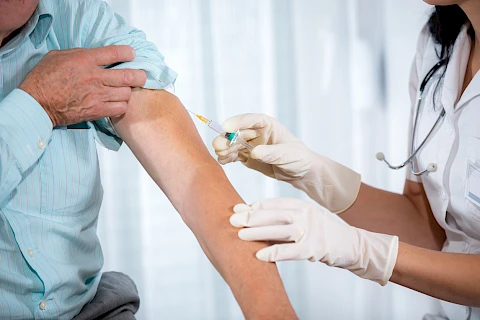
August is National Immunization Awareness Month, a perfect time to talk about the importance of vaccinations for seniors. As seniors age, their immune systems weaken, making them more vulnerable to various diseases. Staying current on vaccinations can protect seniors from serious illnesses. Caregivers must understand why vaccinations are pivotal for senior health, know which vaccines are necessary, and obtain guidance on how to access them.
Why Vaccinations Are Important for Seniors
Seniors are at a higher risk of contracting diseases due to a natural decline in their immune system's ability to fight off infections. Common illnesses that vaccines can prevent include flu, pneumonia, and shingles.
Staying up-to-date on vaccinations offers many benefits:
- Reduces risk of hospitalization
- Protects against serious health complications
- Enhances quality of life
- Prevents the spread of contagious diseases
Necessary Vaccines for Seniors
There are several vaccinations for seniors that they should get regularly to keep them safe and healthy.
Influenza (Flu) Vaccine
The flu is highly contagious and can lead to severe complications in seniors, such as pneumonia and bronchitis. The flu vaccine is seniors' best defense and should be taken annually, ideally before flu season starts in the fall.
Pneumonia Vaccine
Pneumonia can be deadly for seniors. There are two main types of pneumonia vaccines: pneumococcal conjugate vaccine (PCV13) and pneumococcal polysaccharide vaccine (PPSV23). However, seniors over 65 are recommended to take both vaccines, one year apart, to maximize protection.
Shingles Vaccine
Shingles is a painful rash caused by the reactivation of the chickenpox virus. Seniors are at higher risk of developing shingles and its complications, such as long-term nerve pain. The shingles vaccine is recommended for everyone over 50 and is given in two doses, two to six months apart.
Other Recommended Vaccines
Seniors should also consider getting the Tetanus, Diphtheria, and Pertussis (Tdap) vaccine, which they can typically receive every 10 years. Lastly, they should stay informed about the latest COVID-19 vaccines and booster recommendations to maintain protection against this virus.
How to Access Vaccinations for Seniors
Getting up-to-date on vaccinations doesn't have to be difficult. Seniors can start by consulting with their healthcare providers and discussing their vaccination needs. These experts can provide recommendations and administer the vaccines.
Local community health clinics and resources are another option. Many clinics and health departments offer vaccines at low or no cost. Pharmacy services and vaccination programs are also available. Many pharmacies offer vaccination services with convenient hours. Seniors can check with their local pharmacies to see what vaccines they offer and inquire about their availability.
Checklist for Caregivers
Keeping track of seniors' vaccinations can be straightforward with a simple checklist:
- Maintain a Vaccination Record: Note down the date and type of each vaccine.
- Ask the Healthcare Provider: Inquire about recommended vaccines, potential side effects, and follow-up care.
- Monitor for Side Effects: After vaccination, watch for any unusual symptoms and consult the doctor if needed.
- Regularly Update the Checklist: Revise the vaccination record as new recommendations arise.
Turn to Senior Helpers for Assistance
Vaccinations play an important part in safeguarding the health of seniors. During National Immunization Awareness Month, take the opportunity to ensure your senior loved ones are current on their recommended vaccines.
For caregivers in Spanaway, Steilacoom, McChord, Dupont, Lakewood, and nearby, Senior Helpers South Tacoma is here to assist. Contact us for more information and support. By staying informed and proactive, we can help ensure seniors live healthier, longer lives. Don't wait—take action today!